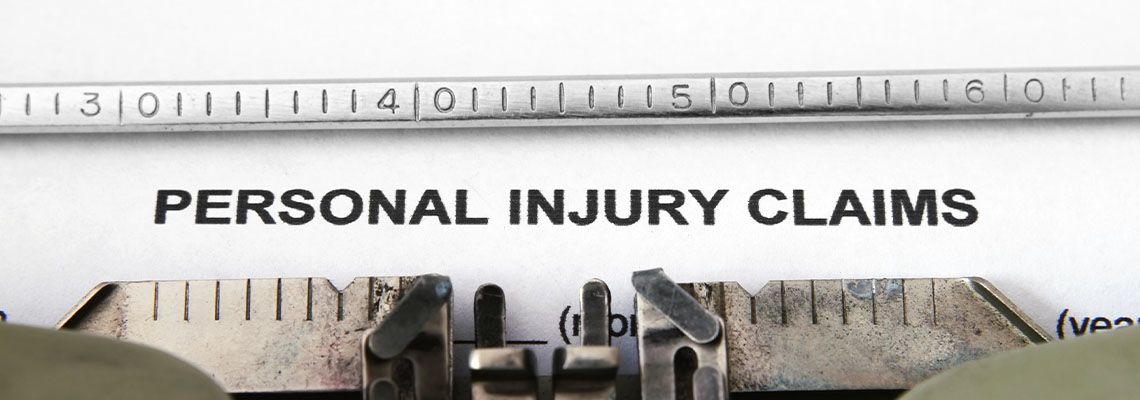
How Do Pre-Existing Medical Conditions Affect a Personal Injury Claim?
Since everyone’s life is different, people go through all kinds of experiences throughout their life. Unfortunately, some of these experiences are traumatic and result in long-lasting injuries, which is why it is not uncommon for personal injury claimants to have pre-existing injuries.
Some people mistakenly believe that a pre-existing injury excludes them from pursuing compensation through a personal injury claim. That is not the case. However, it is true that insurance companies often prey on this misconception and try to use a claimant’s pre-existing medical condition as an excuse to deny the claim or pay as little as possible.
This is one of the reasons why you might want to consult with an experienced attorney when pursuing your injury claim with a pre-existing condition. Our personal injury attorneys at Duncan and Nobles LLC have been helping clients navigate this issue for years. We can help you maximize your claim, fighting for the compensation you deserve, regardless of whether you have any pre-existing medical conditions or not. With offices in Fort Mill and Rock Hill, South Carolina, we serve injured victims throughout Lancaster County and Chester County.
What Are “Pre-Existing Medical Conditions?”
A pre-existing medical condition is exactly what it sounds like. The term refers to any injury or condition that occurred before the accident in question. Contrary to popular belief, a condition does not have to be chronic or permanent to qualify as “pre-existing.” Examples of pre-existing medical conditions may include the following:
Whiplash or other neck injuries
Back injuries
Traumatic brain injuries
Sprains and strains
Broken bones
Herniated discs
Just because a claimant has a pre-existing condition does not mean it cannot be exacerbated or aggravated by an accident. Depending on the type and severity of the accident, many of the conditions mentioned above may get worse.
How Do They Affect a Personal Injury Claim?
The fact that a claimant has a pre-existing medical condition does not change the fact that they were injured in an accident nor does it prevent them from seeking compensation. However, it can complicate things during the personal injury claims process.
Insurance companies may try to limit the amount you can receive through your personal injury claim or even tell you that you will not be able to recover any compensation due to a pre-existing injury. Insurance adjusters will often search through the claimant’s medical history to find any excuse to deny or devalue their claim. Keep in mind that insurers are profit-driven businesses whose goal is to make money, not lose it.
The purpose of obtaining compensation through a personal injury claim is to make you “whole” again. In legal terms, it means returning you to the same position you were before the accident as much as possible. For claims involving pre-existing conditions, making the claimant “whole” does not mean compensating them for their expenses and losses before the accident occurred. Instead, a claimant can receive compensation for new injuries and pre-existing injuries to the degree that the accident made them worse.
The Eggshell Plaintiff Doctrine
The eggshell plaintiff doctrine applies to personal injury cases with pre-existing medical conditions. The doctrine gives everyone, including people who may be more susceptible to injuries because of their medical history, the same rights to pursue fair compensation. The doctrine prohibits insurance companies from treating people with pre-existing conditions differently. In other words, it means you can still pursue compensation through a personal injury claim regardless of your medical history at the time of the accident.
The Importance of Medical History
Things can get even more complicated if a personal injury claimant does not have a well-documented history of their pre-existing medical condition. This could give the insurance company the leeway to claim that the accident did not make your pre-existing condition worse. When there are medical records from before and after the accident, it is possible to determine to what degree the accident made the pre-existing condition worse or whether that condition was affected at all.
If your pre-existing condition was poorly documented or there are no medical records to show its existence before the accident, it will be a lot easier for the insurance company to diminish the value of your claim or deny benefits altogether.
Those who do not have a well-documented medical history to show the extent of their pre-existing condition may find it tempting to hide the fact that they had the condition from their doctor and insurance company. However, being dishonest about your pre-existing injuries can lead to serious repercussions, including potential criminal consequences for trying to defraud the insurer.
Let Our Firm Represent You
Your pre-existing medical condition should not keep you from filing a personal injury claim. Our experienced and results-driven attorneys at Duncan and Nobles LLC can help you navigate the issues that may arise during the personal injury claims process so that you can focus on healing and moving forward with your life. Reach out to our office today to discuss your best course of action to give you a fair fight in receiving full and fair compensation.
